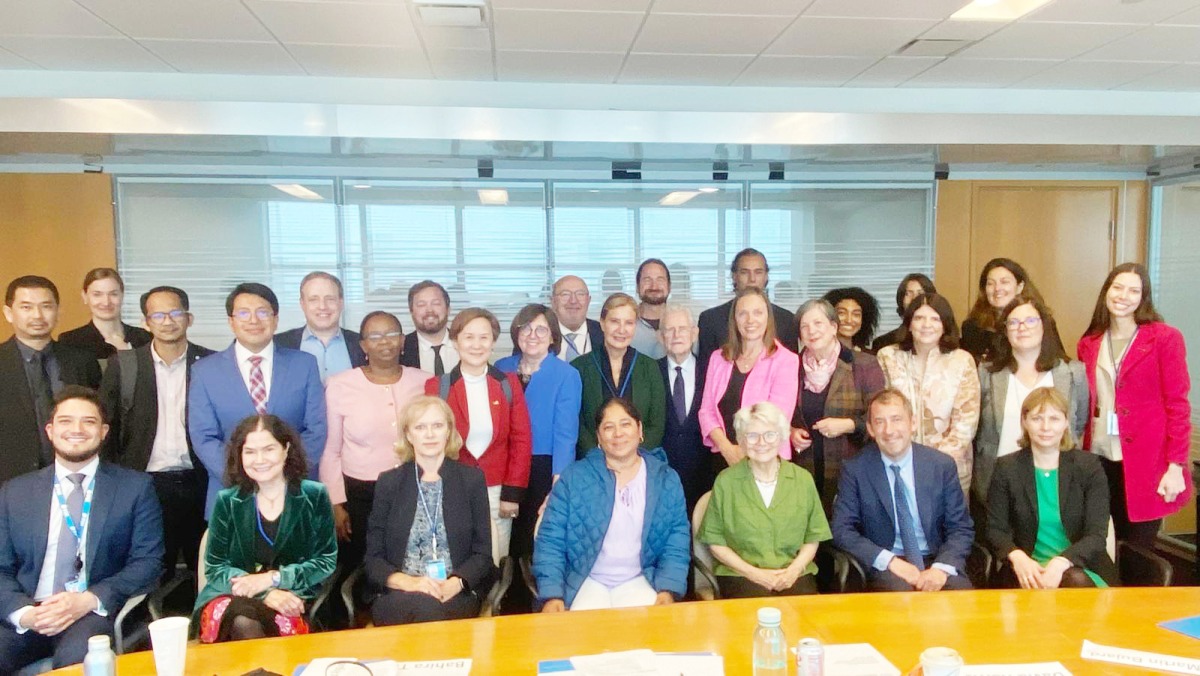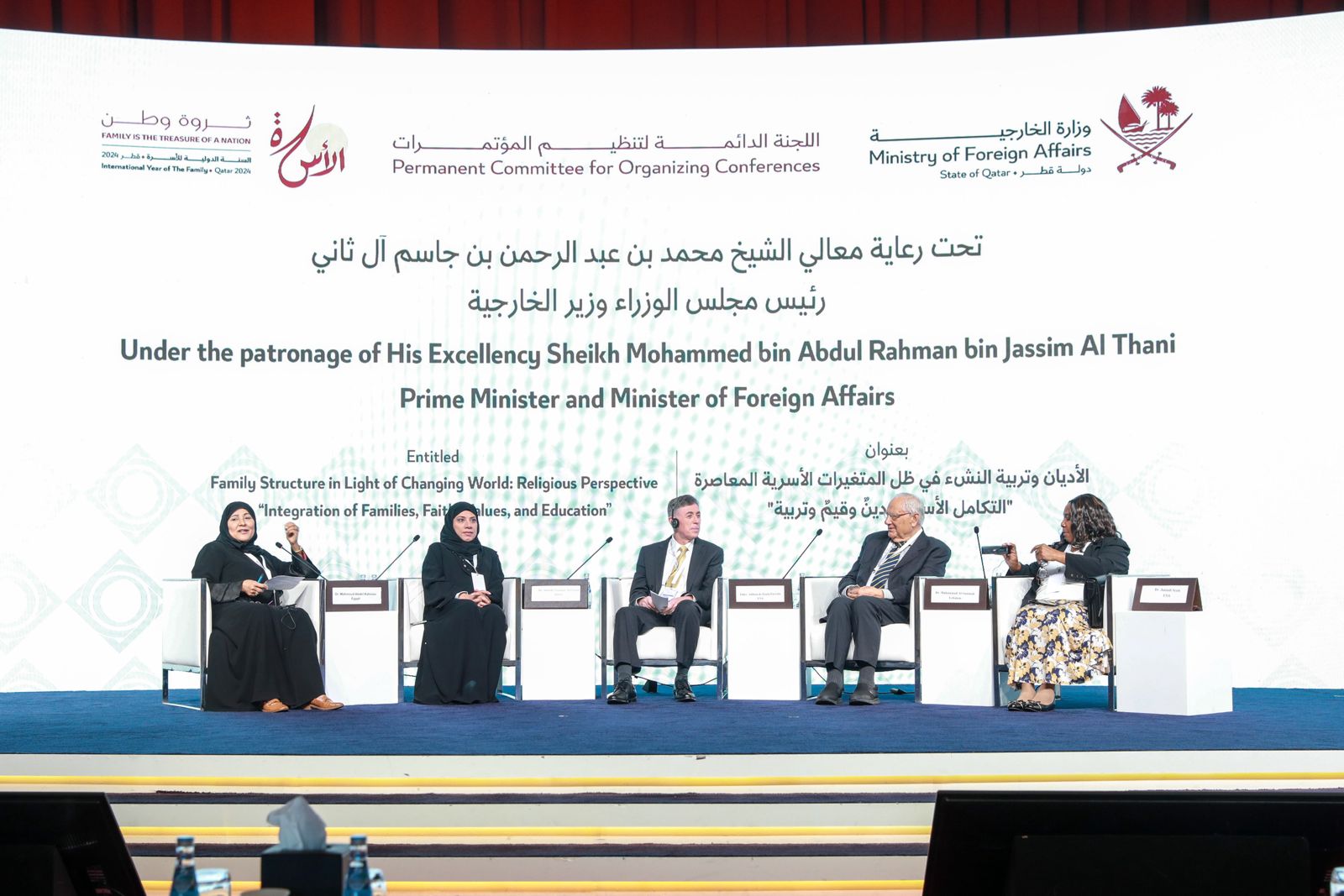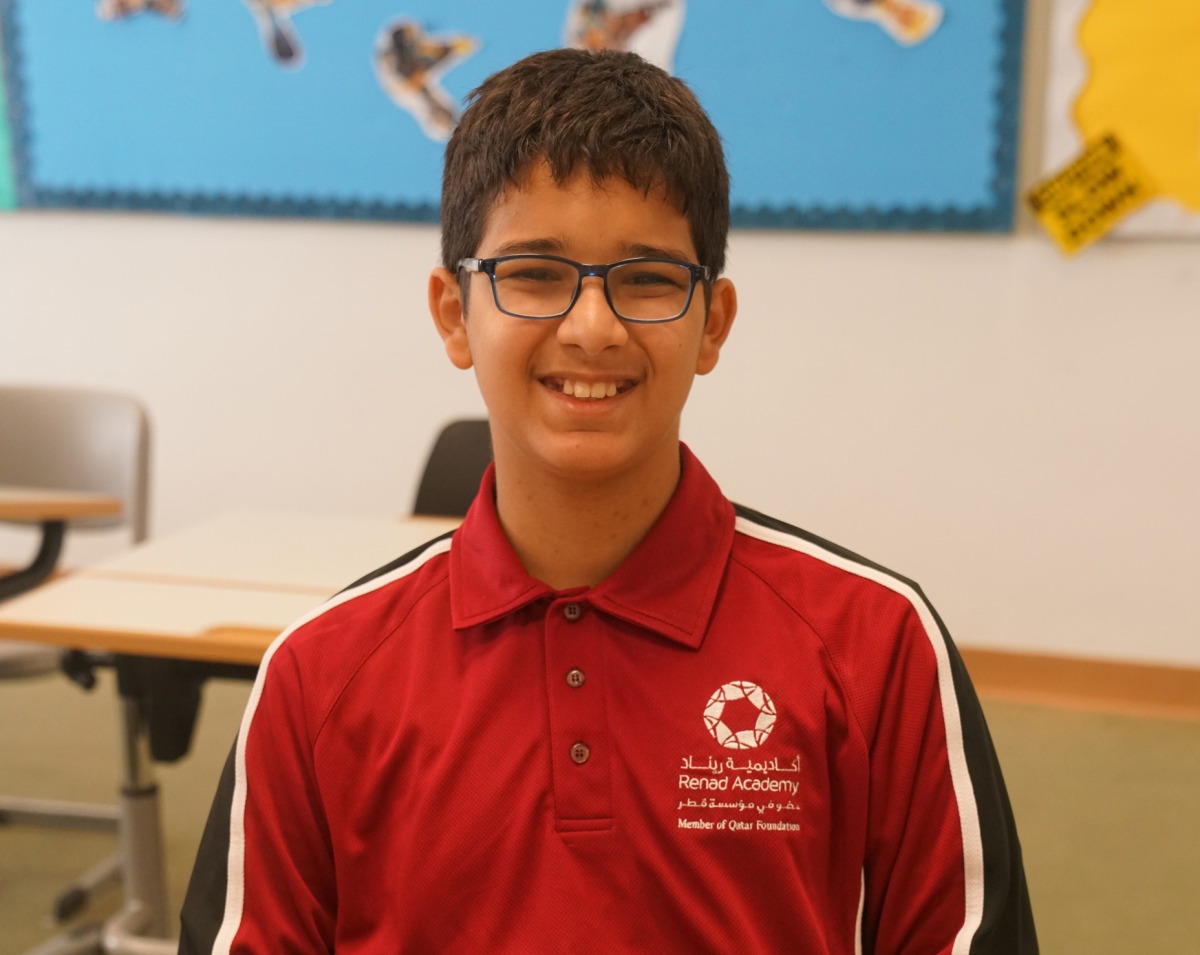
Dialogue Organized by the Doha International Family Institute (DIFI). Topic: As They Raised Me From Childhood: Specialized Programs to Better Parenting
The Doha International Institute for Family Studies and Development (DIIFSD) concluded a two-day series of lectures and discussions on key familial trends developing in the Arab world.
The events featured guest speaker Dr Nicholas Eberstadt, a political economist and a demographer that is an advisor at the American Enterprise Institute and National Bureau of Asian Research. Dr. Eberstadt led the two-day agenda, where he addressed audiences on emerging patterns in marriage and fertility in Arab families and the greater Muslim world.
The event was attended by representatives from the Ministry of Awqaf and Islamic Affairs, General Secretariat for Development Planning (GSDP), Social & Economic Survey Research Institute (SESRI), and Al Aween Social Rehabilitation Centre Doha, amongst other media and guests.
In this morning’s discussions on the subject of fertility decline amongst Arab families, evidence was presented to show that throughout the Muslim world, fertility levels are falling dramatically for countries and sub-national populations. Traditional marriage patterns and living arrangements are undergoing tremendous change.
Dr. Eberstadt demonstrated that four of the ten greatest fertility declines ever recorded in a 20-year period have taken place in the Arab world, specifically Algeria, Libya, Kuwait and Oman, and the greater Muslim world.
The low fertility levels for the Muslim-majority societies in question were more prevalent amongst sects of society with lower levels of income and education. In addition, urbanization and the increased use of modern contraception are further contributing to this trend.
Yesterday, the lecture focused on a phenomenon called “flight from marriage”, which is the rise in the singulate female age at marriage (the average length of single life expressed in years amongst those who marry before age 50), fall in the total first marriage rates and rise in total divorce rates. Dr Eberstadt highlighted patterns on how the flight from marriage phenomenon is increasingly prevalent in the Arab world. Similar to the patterns on fertility, this is occurring largely amongst lower income level and less educated sects of society, especially women.
According to statistics by the Statistics Authority (SA) in Doha, the average age of first marriage in Qatari females was 19.2 in 1986 but rose to 23.5 in 2010. In Qatari men, the average first marriage age was 24.8 in 1986 but rose to 23.5 in 2010.
Commenting on the lectures, Ms. Noor Al Malki Al Jehani, Executive Director, DIIFSD, stated: “While education is one contributing factor to the patterns of marriage and fertility that are occurring in the Arab world, these are not solely female issues. There is a need to collate more data on the Arab male populations in order to better understand the full picture of these occurrences as cultural implications amongst men are different than those of women”.
DIIFSD has been introducing various research, policy, and outreach programmes that address hard-hitting, real-life developments in family matters impacting the Arab world with the aim of building a well-rounded, healthy, and ultimately a more sustainable Arab society.
Dr Eberstadt, is also a renowned author of numerous monographs and articles on North and South Korea, East Asia, and countries of the former Soviet Union. He has also authored a Chapter in a book on ‘Population Dynamics in Muslim Countries‘, which is supported by DIIFSD.



The Doha International Family Institute (DIFI) has launched the OSRA research grant in its sixth cycle which is a research grant on Arab families and family policy related issues.
Find Out More